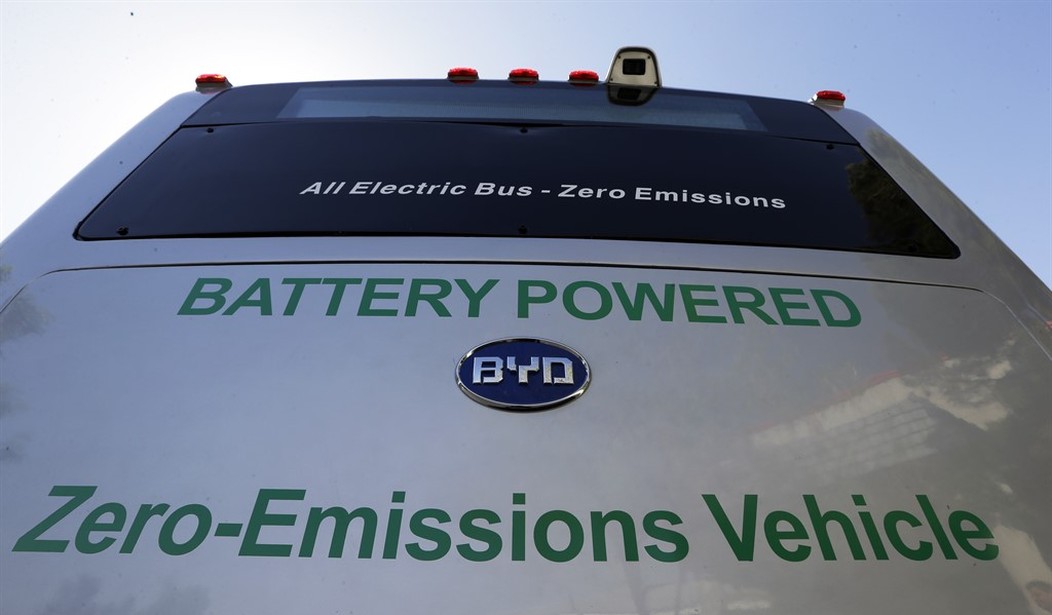Philadelphia, Pennsylvania is one of the deep-blue cities that’s been priding itself in leading the charge against climate change for years now. Back in 2016, they decided to establish a position as an early adopter of electric vehicle technology on a large scale to reduce their carbon footprint. The city purchased 25 electric buses from a company called Protera at a staggering price tag of nearly one million dollars apiece and put them into operation. But barely four years later, every one of the buses had been pulled from service and is deemed unusable. What went so horribly wrong to produce such a result? As the Free Beacon reports this week, just about everything that could go wrong did go wrong.
More than two dozen electric Proterra buses first unveiled by the city of Philadelphia in 2016 are already out of operation, according to a WHYY investigation.
The entire fleet of Proterra buses was removed from the roads by SEPTA, the city’s transit authority, in February 2020 due to both structural and logistical problems—the weight of the powerful battery was cracking the vehicles’ chassis, and the battery life was insufficient for the city’s bus routes. The city raised the issues with Proterra, which failed to adequately address the city’s concerns.
The city paid $24 million for the 25 new Proterra buses, subsidized in part by a $2.6 million federal grant.
It’s hard to tell how much of the responsibility for this very expensive mess falls on the shoulders of Proterra and how much should be borne by the city planners. The fact that the buses’ frames were not strong enough to bear the weight of the giant batteries that power them, leading to cracks in the chassis is clearly a structural design failure, so Proterra should be on the hook for selling a defective product.
The fact that the buses’ batteries didn’t hold enough juice to finish some of the bus routes is a more complicated issue. The city had to have known how many miles each bus would need to go on each trip based on data from their previous fleet of internal combustion engine buses. So did they fail to work with Proterra’s figures and ask too much of the buses or did Proterra oversell their battery life claims? According to reports from the time, the city knew that many buses needed to be able to make it 100 miles per charge, but the Proterra buses were only averaging 40 to 50 miles.
Adding more charging stations at the ends of the longer routes wasn’t a viable plan. First, it would have driven up the costs even further. But even if the charging stations were available, nobody is going to sit on a bus for the hours that it takes to recharge one of those giant batteries. You can refill a bus gas tank in a few minutes and be back on the road. It just wasn’t feasible.
In 2016, the city waved away complaints about the outrageous cost of the buses by saying that they would save money because the electric buses “would require less maintenance than standard combustion engine counterparts.” That may be true on a single-year basis, but you’d have to run them for a very long time to make up the difference in the initial purchasing costs. They didn’t save more than half a million dollars in maintenance for each bus in only four years before they all failed.
The failure of the buses in Philadelphia took place long before Joe Biden made a “virtual appearance” at Proterra’s factory in April to tout them as a “company of the future.” The company had already sucked up at least $2.6 million in federal grants from the Philly project and Uncle Joe promised that his infrastructure package would include federal money for the electric vehicle market.
Perhaps a better question today would be to ask if Proterra needs to be sued to get some of that taxpayer money back. Of course, this might not be a very deep pocket to go after at this point since their stock has plunged 25% in the past week following other problems they’ve run into in other cities this year.









